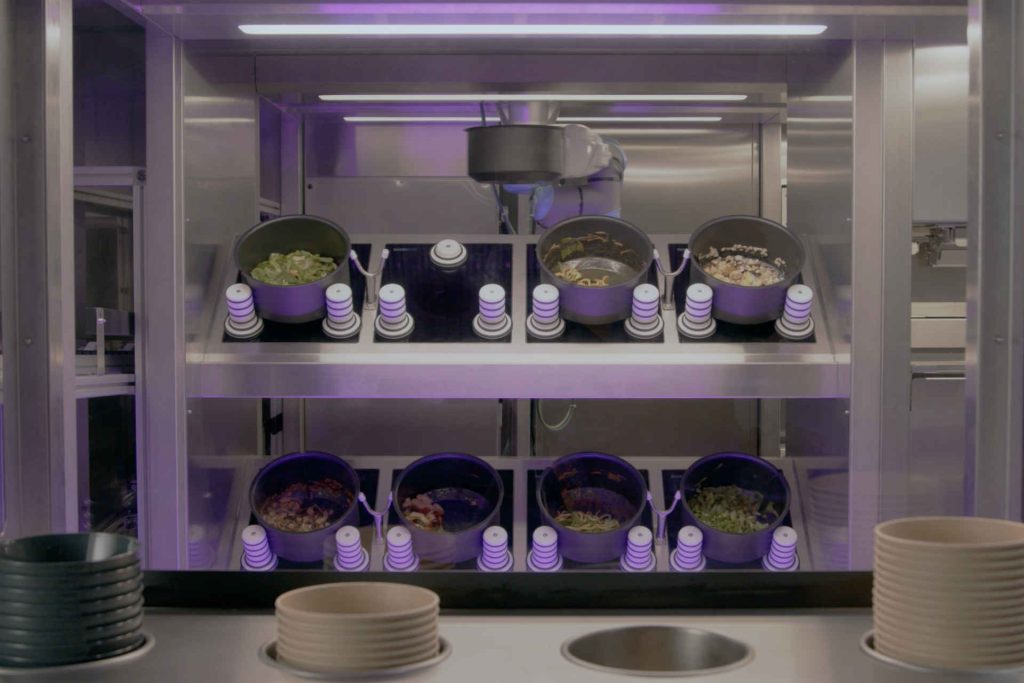
From ticketing systems to cooking robotics: the restaurant industry is undergoing a digital transformation. What began as a technological gimmick is now becoming a real competitive advantage. Why digital processes bring more predictability, better guest experiences and new perspectives for employees – and where people still remain irreplaceable.
A restaurant without traditional reservations but with a predictable number of guests? It sounds unusual, but it has long been a reality at the Gmundnerberghaus. Mike Süsser and David Daxner rely on a sophisticated ticketing system that makes events predictable and prevents no-shows. "This is not only efficient, but also feels better for the guests. They experience more attention because the team knows who is sitting where and when," says Süsser.
Daxner adds: “For us, this means more time for genuine hospitality instead of improvisation.” Predictability becomes the key concept. Also for the team. “Anyone starting out with us can see months in advance which events are coming up,” explains Süsser. This creates transparency and a new working culture in a sector that often struggles with uncertainty.
According to a recent survey by Circana (May 2025), consumer spending rose by +1% in the first quarter of 2025 despite a decline in visitor numbers. Digital touchpoints such as Click&Collect and online ordering now account for 7% of all dining occasions - and the trend is rising. Edurne Uranga, VP Foodservice EMEA at Circana: "Those who use digital channels wisely can hold their own in a highly competitive market. Added value is created where data becomes the basis for decision-making."
At Gmundnerberghaus, AI is not used to steal recipes, as Mike Süsser emphasizes with a wink. “But it is worth its weight in gold for new ideas, marketing texts, processes and agreements.” Tobias Bätz, Executive Chef at Posthotel Alexander Herrmann, also uses AI as a sparring partner: “No tool can give you emotion in texts, but it helps to develop new perspectives.” According to David Daxner, AI also has its limits: "In the kitchen, craftsmanship remains craftsmanship. Our pizza doesn't automatically recognize its perfect cooking point - but it's still great."
With "Lady Umami", F&B Heroes presents Germany's first fully autonomous ghost kitchen. The cooking robot produces dishes in a scalable and economical way. According to operator Tim Plasse, the operating margin is 33% above the industry average, and the ratings on Wolt speak for themselves. For Süsser, robotics is not a taboo: "It can be really exciting in the canteen. Wok pan at the touch of a button, accurate to the gram? That's a great idea!" Nevertheless, he urges a balance: "The personal touch must remain in service. A robot that serves? Difficult."
Digital feedback tools via QR code are part of everyday life at the Gmundnerberghaus. “Many guests don't say anything to our face, but write it online,” explains Mike Süsser. But even here, the personal touch remains important: "We combine both. Hybrid approaches work." The use of data goes further: “Newsletters are used in a more targeted way, events are advertised better and guest movements are analyzed,” says Daxner. Digitalization becomes the strategic basis.
The gastronomy of the future is not purely digital, but digitally sophisticated. Processes such as ticketing or feedback analysis create space for the essentials: genuine hospitality. Whether AI, robotics or data usage - in the end, it's the human being who counts as an emotional anchor.

There is a tension between digital progress and emotional hospitality that is redefining the restaurant industry. AI, automation, and data-based processes are changing not only workflows, but also attitudes, communication, and expectations. What was once considered a gimmick is now becoming a strategic necessity. And perhaps the most important question of our time: How can humans remain relevant in a world that is becoming increasingly digital?
The Austrian brand Kumanu shows how circular thinking can be applied in everyday life—and makes doing without plastic both practical and aesthetic. With its “Frischefritz” beeswax wraps and ‘Krümelkarl’ and “Pausenpaul” bread and snack bags, it provides the industry with a well-thought-out solution for keeping food fresh for longer – without any plastic or aluminum foil.
The products are made from GOTS-certified organic cotton, organic beeswax from Austria and Germany, and tree resin from traditional pitch production – a combination that has an antibacterial effect and guarantees natural durability.
Leonardo Hotels is expanding its commitment and turning World Cleanup Day 2025 into a European movement: Employees from 140 hotels in 12 countries are participating in cleanup campaigns – from Berlin to Bucharest, from London to Rome. Instead of a single day, the period has been extended to ten days to allow as many teams as possible to participate.


From ticketing systems to cooking robotics: the restaurant industry is undergoing a digital transformation. What began as a technological gimmick is now becoming a real competitive advantage. Why digital processes bring more predictability, better guest experiences and new perspectives for employees – and where people still remain irreplaceable.